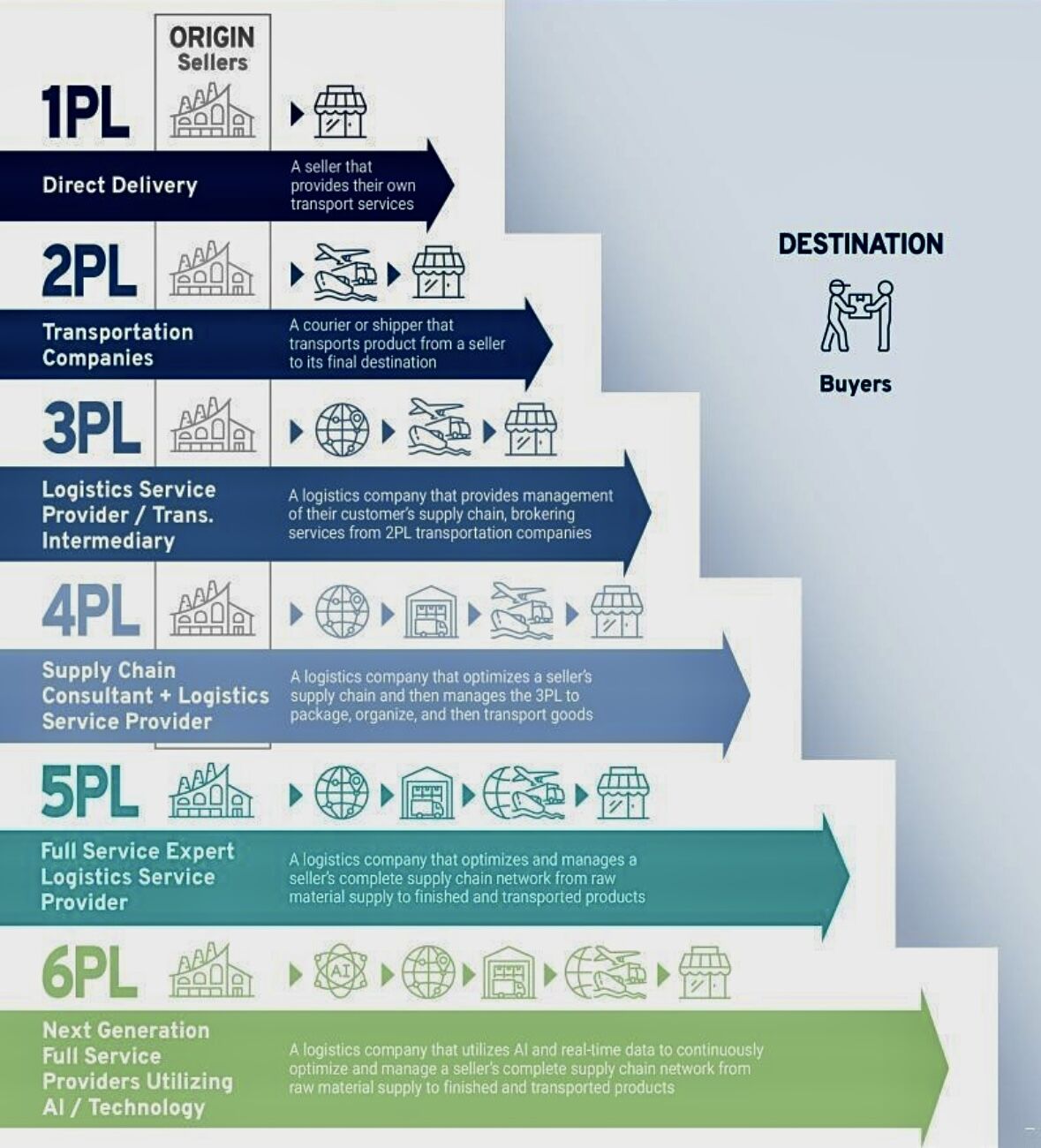
The world of logistics is multifaceted, with each type playing a distinct role in the supply chain. From direct delivery by the seller to advanced, technology-driven logistics solutions, understanding these logistics types is crucial for optimizing business operations. Here’s a look at the six logistics types, each progressively adding complexity and value to the supply chain.
1PL: Direct Delivery
First-party logistics (1PL) is a straightforward delivery model in which the seller manages the entire transportation process. The company uses its resources to deliver goods directly to the customer. This type is common among businesses that prefer maintaining control over their logistics operations, ensuring the products are offered according to their standards. However, this approach can be resource-intensive and limit the company’s scalability.
2PL: Transportation Companies
Second-party logistics (2PL) involves outsourcing transportation to external carriers or couriers. Businesses contract with transportation companies to move their goods to the final destination in this setup. While this model offers greater flexibility than 1PL, it also introduces a dependency on third-party providers, which can impact delivery times and service quality. However, it remains a practical choice for businesses looking to expand their reach without investing in their transportation infrastructure.
3PL: Logistics Service Providers
Third-party logistics (3PL) marks a significant shift as companies outsource transportation and other logistics functions like warehousing, inventory management, and order fulfillment. 3PL providers manage a company’s entire supply chain, offering expertise and economies of scale that can enhance efficiency and reduce costs. This type of logistics is ideal for companies looking to streamline operations and focus on their core business while relying on experts to handle the complexities of logistics.
4PL: Supply Chain Consultants
Fourth-party logistics (4PL) goes beyond traditional logistics services by offering comprehensive supply chain management solutions. A 4PL provider is a consultant and manager who optimizes the entire supply chain, from raw materials to the final product delivery. This model often involves coordinating multiple 3PL providers to ensure that every aspect of the supply chain operates seamlessly. Companies that engage 4PL providers benefit from a higher level of strategic oversight and integration, resulting in improved efficiency and customer satisfaction.

5PL: Full Service Logistics
Fifth-party logistics (5PL) providers take logistics management to an even higher level by focusing on the entire supply chain network, including procurement, production, and distribution. These providers offer end-to-end solutions that cover every aspect of the supply chain, from sourcing raw materials to delivering finished products to customers. 5PL providers often leverage advanced technologies like AI and automation to optimize the supply chain, ensuring maximum efficiency and cost-effectiveness. This level of service is precious for companies with complex, global supply chains that require continuous optimization.
6PL: Next-Generation AI-Driven Logistics
Sixth-party logistics (6PL) represents the future of logistics, integrating AI and real-time data to optimize and manage supply chains dynamically. 6PL providers utilize cutting-edge technology to continuously improve the supply chain, from sourcing to delivery. This approach allows for predictive analytics, real-time tracking, and adaptive logistics strategies that respond instantly to changes in demand or supply conditions. As businesses increasingly rely on data-driven decision-making, 6PL providers are becoming essential partners in maintaining a competitive edge.
As technology continues to shape the logistics landscape, understanding these distinctions between different logistics types becomes crucial for businesses aiming to optimize their supply chains and stay competitive. From 1PL to 6PL, each step represents a leap in efficiency, integration, and technological advancement. By choosing the right logistics model, businesses can enhance their operational efficiency, reduce costs, and deliver better customer service, ensuring long-term success in an increasingly complex global market.